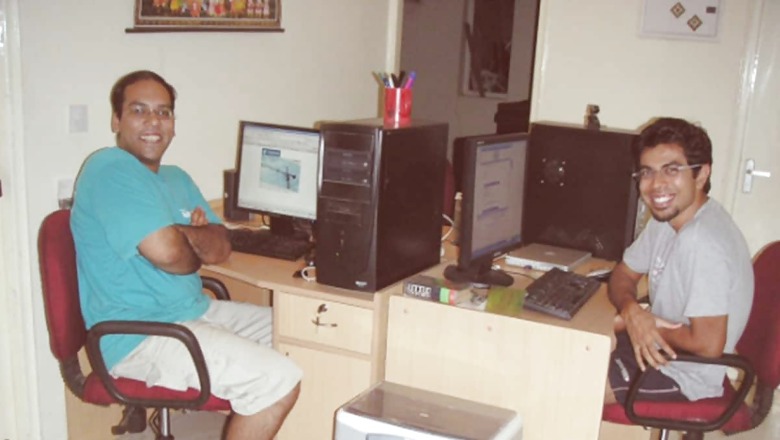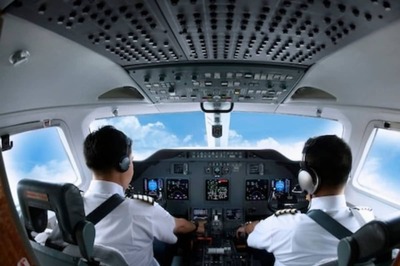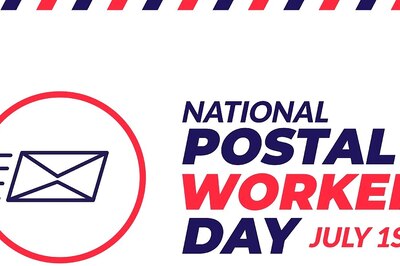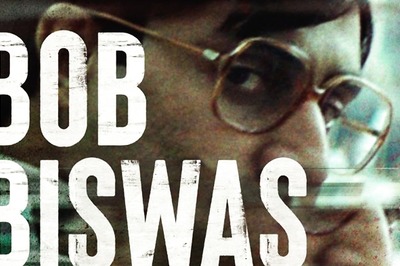
views
Travel tech businesses are thriving in India due to the country’s growing travel and tourism industry, increasing smartphone penetration, digital payments, technological advancements, government initiatives, and a supportive start-up ecosystem. These factors have created a favourable environment for innovative travel tech companies to cater to the evolving needs of Indian travellers, offering personalised services, seamless booking experiences, and localised solutions.
However, in the last three years, the online travel aggregator (OTA) space has gone through some drastic changes. Travel industry was one of the worst affected sectors hit by COVID-19 and a fall in tourism impacted booking platforms globally. Many players faced a decline in their revenues, bookings and profits. ixigo shared that it charted a strong growth and has witnessed 5X growth post the pandemic by the end of FY23 with an operating revenue of over Rs. 500 crore and is profitable.
ixigo has focussed on building product experiences based on cutting edge technology to make travel a seamless experience in India. Today, ixigo is one of the fastest growing OTAs in India, with a current Run-Rate of Rs. 10,000 Crore Annualised GTV and 50 Million Annual Bookings.
However a few know that the journey till here started from a small apartment in Gurugram.
Beginnings
Launched in 2007 by Aloke Bajpai and Rajnish Kumar, ixigo is a technology company focused on empowering Indian travellers to plan, book and manage their trips across rail, air, buses and hotels. The travel platform makes this possible by leveraging artificial intelligence, machine learning and data science-led innovations on ixigo’s OTA platforms, including websites and mobile applications.
The company started off as a search engine for travellers who mostly used buses or trains. But ever since the firm got into ticketing, there has been no looking back.
The 1997-01 batchmates of IIT Kanpur, Aloke Bajpai and Rajnish Kumar worked together at Madrid-based travel company Amadeus earlier. Moving back to India later, the duo had their eyes on building an innovative product with a meta-search model, owing to the ideology that it was more consumer-friendly. The intention was to build something more efficient than what is already out there in the market. That’s when ixigo was born in 2007.
Aloke Bajpai, group CEO and co-founder, said, “I was working for a travel technology company in France, called Amadeus. I started my career with them. Post that I went to NCAD for my business school. At business school, I tried to get into consulting but got rejected by the big four, dejected actually, and said, “Maybe I should go back to India and do something of my own.”
“I came back here, didn’t have any money. I worked for a company called Final Quadrant which was doing travel technology ERP, did biz debt for 8-9 months, and then in 2006, mid 2006, one fine day, sent in my resignation and said, “Kuch karte hain, bohot ho gaya”.
He added that at that time, it was an interesting time because the day he resigned, a month before that Yatra had just raised money, MakeMyTrip had announced big plans for India, and Air Deccan was at its own high, 1 rupee, 99 rupee and all that.
“It looked like an exciting time to do something in travel in India, just did not know what. When you work in the south of France, you need a lot of motivation to quit your job and move back to India, but still, Rajnish, my co-founder did that, and we had another co-founder who dropped off along the way. We started working on the idea of ixigo in late 2006.”
Initial bootstrap
The co-founders initially bootstrapped Rs. 6 lakhs between themselves, with which they bought 3 computers, 3 desks and 3 beds. They rented a small apartment in Gurugram and that time it was affordable with the rent being close to Rs. 15,000 a month.
“It was actually the most affordable place to rent anything. It was the end of 2006 we are talking about. We rented an apartment and we said we’ll build something here in 6 months. We built ixigo and we launched it in June 2007,” said Rajnish Kumar, group CPTO and co-founder, ixigo.
How the company leveraged organic growth
“Within 6 months, we went to 100,000 monthly users organically because we had zero marketing dollars. At least for the first five years of existence we didn’t have money so we had a seed round which came as a saving grace in early 2008, half a million dollars, just before the financial crises. If that didn’t come, we won’t be around but we used that largely to build a good team. We had 10-12 good people all of them were engineers and IIT’s kind of guys they helped us to build our product out in a much bigger way.”
“We started aggregating inventory from multiple sources and having worked at Amadeus, we knew the brick and mortar of the business. We also knew that in the foreseeable future these layers of intermediaries might go away so we wanted to not just depend on the OTs but also build a direct relationship with the airlines and we integrated almost 20 airlines across international and domestic backdrop.”
“We have had an interesting journey from being a meta-search engine to evolving into an OTA. We started off as a content and utility platform allowing users to view and compare best possible deals and access additional functionalities like train running status, PNR status and other meta information.”
“Over time, we added the convenience of booking tickets for trains and flights, in addition to hotel and cab booking services, to foray into the OTA space. Today we are one of the most downloaded and most used travel app among the prominent travel apps in the country,” said Bajpai.
Bold bets on AI
While other OTAs focused on airlines and hotels, ixigo chose to prioritise railways by providing useful intercity railway information to their customers. Through this, they gained word-of-mouth popularity between 2014 and 2018. The company realised the long-term potential of the next billion users by taking a deeper bet than incumbents on trains, a category in which it is now the market leader.
ixigo further launched innovative AI-based data-driven features, such as a multilingual UI, travel assistant (TARA), live running status, Siri shortcuts, and an AR feature, which allows train passengers to locate their coach positions at more than 7,000 railway stations across the country. These innovations caught the eye of users and the app started gaining good traction in a short time.
Later in 2017, building on the success of its launch, ixigo started selling tickets as an additional service for IRCTC along with its existing travel offerings such as flights, buses and hotels. That saw ixigo become a complete ‘one-stop-travel’ solution platform.
Kumar said that one of the biggest advantages ixigo has is their product and tech intensity.
“We took bold bets on building a research team that worked on AI and data-driven predictive use cases such as train seat availability prediction, flight fare prediction and automated seat selection. Today these advanced algorithms and the millions of data points we feed into them every day ensure that our users get better information for making buying decisions.”




















Comments
0 comment